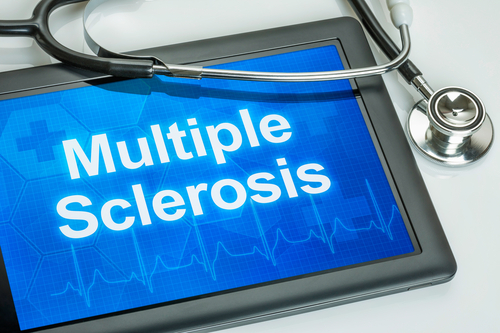
Although methylphenidate, modafinil, and amantadine are often prescribed to treat fatigue in patients with multiple sclerosis (MS), data on their use are unclear. A study compared their efficacy against one another and placebo in patients with MS fatigue.
This was a randomized, placebo-controlled, four-sequence, four-period, crossover, double-blind trial that recruited patients with MS whose Modified Fatigue Impact Scale (MFIS) score was >33. Patients were given oral amantadine (up to 100 mg twice daily), modafinil (up to 100 mg twice daily), methylphenidate (up to 10 mg twice daily), or placebo for up to six weeks. The intention was to give all patients all four study medications in one of four different sequences, using a two-week washout period between each medication. The main outcome measure was MFIS, assessed when the patient was taking the highest-tolerated dose at week five of each medication period.
A total of 141 patients were randomized to one of four medication sequences: amantadine, placebo, modafinil, and methylphenidate (n=35 [25%]); placebo, methylphenidate, amantadine, and modafinil sequence (n=34 [24%]); modafinil, amantadine, methylphenidate, and placebo (n=35 [25%]); and methylphenidate, modafinil, placebo, and amantadine (n=37 [26%]). Of the 141 patients randomized, data were available for 136 for the intention-to-treat analysis of the primary outcome.
The estimated mean MFIS total score at baseline was 51.3 (95% confidence interval [CI], 49-53.6). Estimated mean MFIS values at the maximal tolerated doses were: placebo, 40.6 (95% CI, 38.2-43.1); amantadine, 41.3 (95% CI, 38.8-43.7); modafinil, 39.0 (95% CI, 36.6-41.4); and methylphenidate, 38.6 (95% CI, 36.2-41; P=0.20 for the overall medication effect in the linear mixed-effect regression model). Adverse events (AEs) were more commonly reported among patients taking amantadine (n=49/127 [39%]), modafinil (n=50/125 [40%]), and methylphenidate (n=51/129 [40%]) compared with placebo (n=38/124 [31%]). There were three AEs recorded during the study: pulmonary embolism and myocarditis, both while taking amantadine, and an MS exacerbation that necessitated hospitalization, while taking modafinil.
“Amantadine, modafinil, and methylphenidate were not superior to placebo in improving MS fatigue and caused more frequent AEs. The results of this study do not support an indiscriminate use of amantadine, modafinil, or methylphenidate for the treatment of fatigue in MS,” the study authors concluded.







 © 2025 Mashup Media, LLC, a Formedics Property. All Rights Reserved.
© 2025 Mashup Media, LLC, a Formedics Property. All Rights Reserved.